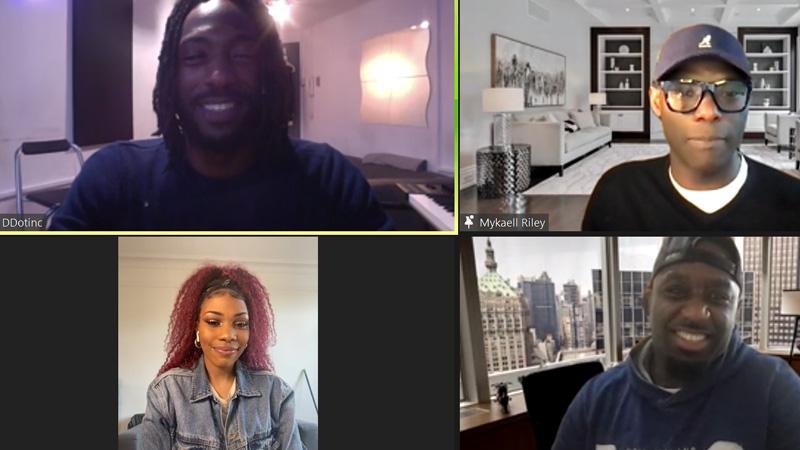Black UK music artists Dot Inc, Lylo Gold and Ben Wynter shared their experiences of the industry as part of Westminster’s Black History Year event series.

Mykaell Riley, Senior Lecturer and Director for the Black Music Research Unit, hosted the event which involved a conversation about Black artists and executives in the music industry and their personal experiences in both the US and UK markets. The artists also discussed the topics of marginalisation, breaking through glass ceilings, creative boundaries and significant labels in the industry like ‘Pop’ and ‘R&B’.
Dot Inc began by talking about how the music experience and the Black music experience are unfortunately two very different things in many areas such as the inner music industry, education and political establishments. He provided the concerning fact that only two percent of conservatoire teachers are of a Black, Asian or Minority Ethnic background.
The artists discussed what the term ‘Black music’ means to them, and how the history of all music is linked to Africa and Black people, but in 2021, with the various musical genres, Ben Wynter said he would class Black music as those genres where Black artists are the primary focus, such as Hip Hop, R&B, Reggae and Soca.
Talking about the term ‘Urban’, Ben Wynter said: “I find it highly offensive and once you understand the reasoning behind it, when you get into the fact that the term became popular as a result of Hip Hop becoming the world’s most popular musical genre which was generating the most money, that’s when the term came in because it was about taking that away from Black people and taking that ownership which would give Black people value. Once you start getting into that, ‘Urban’ becomes a very disturbing term for me, so I refuse to use that, and it has always been Black music for me.”
Lylo Gold discussed the need for labels to support young Black artists and understand the communities they have grown up in. She said: “Until people actually take the time to look at the spaces that these artists are coming from, for instance you’re seeing a lot of these young Black artists that are 18 or 19 years old getting these deals, these Drill artists who are living in areas of poverty, they have lost friends, they might have PTSD, they probably have mental health issues and I think the record labels are just throwing loads of money at these kids and expecting them to take that money and know what to do with it, know how to invest it, know how to develop their careers, know how to kind of manoeuvre around this industry, know how to kind of balance their social, emotional and mental health needs, without any support apart from money.”
The event closed with a Q&A session where attendees were invited to ask questions, which included discussions of sexualised music content, Black artists and niche music.
Watch the full discussion on YouTube.


